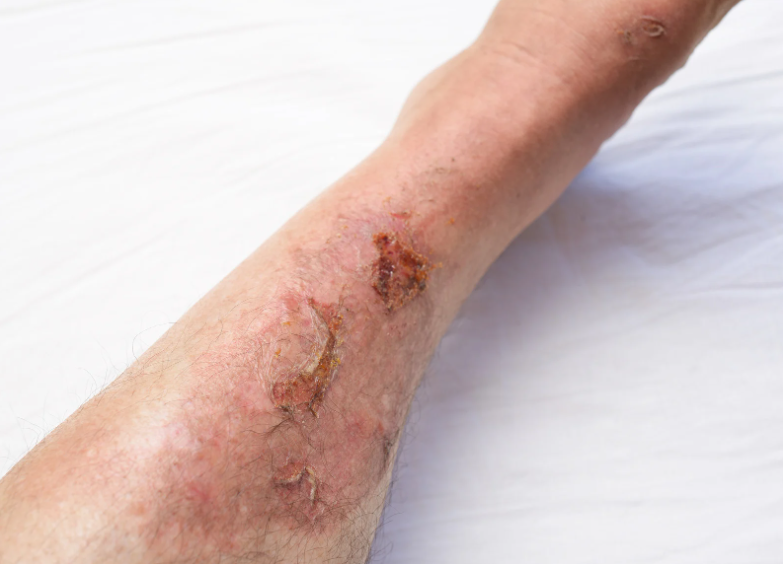Proper wound care is not just about covering an injury with a bandage. Without expert attention, even a small wound can escalate into serious complications that affect long-term health and quality of life. This is why consulting a Certified Wound Specialist is critical for individuals with complex or slow-healing wounds. These highly trained professionals have the expertise to prevent chronic complications, minimize risks, and promote faster recovery. Among the trusted providers of this specialized service, Kalingap Wound Care Clinic stands out as the best company to engage for advanced wound care.
Understanding Chronic Wound Complications
Chronic wound complications can arise when injuries fail to heal properly or become infected. Issues such as diabetic ulcers, pressure sores, venous leg ulcers, or surgical wound breakdowns often result in prolonged discomfort and potential disability. Complications like severe infections, tissue death, or even amputations can occur if wounds are not managed correctly. A Certified Wound Specialist focuses on preventing these outcomes by addressing the root causes of delayed healing and ensuring the wound environment supports recovery.
Why Choose a Certified Wound Specialist?
The role of a Certified Wound Specialist goes far beyond basic wound dressing. Certification ensures that the specialist has undergone rigorous training and evaluation in wound assessment, advanced therapies, and patient care. Unlike general practitioners who may provide temporary relief, a wound specialist develops long-term strategies to treat complex wounds effectively. Choosing the right expert, especially from reputable providers such as Kalingap Wound Care Clinic, guarantees comprehensive care that prevents chronic complications and restores patients’ health more efficiently.
Key Ways a Certified Wound Specialist Prevents Chronic Complications
Accurate Diagnosis and Assessment
A Certified Wound Specialist begins with a thorough evaluation of the wound’s depth, size, and severity. Beyond surface-level care, they investigate underlying factors such as diabetes, vascular disease, or infection risks. By diagnosing the exact condition, they prevent the wound from worsening and create a targeted treatment plan.
Personalized Wound Care Plans
No two wounds are the same, which is why a Certified Wound Specialist designs individualized treatment strategies. This can include advanced dressings, negative pressure wound therapy, or bioengineered skin substitutes. At Kalingap Wound Care Clinic, specialists ensure every patient receives tailored care to optimize healing and avoid unnecessary complications.
Infection Prevention and Control
One of the greatest threats to proper healing is infection. A Certified Wound Specialist applies sterile techniques, uses evidence-based cleaning methods, and monitors wounds for early infection signs. Timely intervention ensures that bacteria do not spread, protecting patients from sepsis or other serious health issues.
Optimizing the Healing Environment
Healing requires the right balance of moisture, oxygen, and circulation. A Certified Wound Specialist knows how to maintain these conditions by using innovative therapies such as oxygen treatments or growth factors. By creating an environment conducive to healing, chronic wounds close faster and healthier tissue forms more effectively.
Addressing Underlying Health Conditions
Many chronic wounds are linked to conditions like diabetes, obesity, or poor circulation. A Certified Wound Specialist looks beyond the wound itself to manage these contributing factors. Nutritional advice, circulation improvement strategies, and blood sugar monitoring are incorporated into care plans at Kalingap Wound Care Clinic, ensuring long-term success in preventing recurrence.
Patient Education and Long-Term Monitoring
Education is one of the strongest tools in wound prevention. A Certified Wound Specialist teaches patients how to care for their wounds at home, recognize warning signs, and adopt healthier lifestyles. Regular monitoring and follow-ups ensure patients stay on track, preventing relapse and chronic complications.
The Benefits of Working with a Certified Wound Specialist
Choosing a Certified Wound Specialist brings multiple advantages. Patients experience faster healing times, reduced risk of infections, and fewer hospital readmissions. Preventing complications also lowers healthcare costs and improves overall quality of life. With the dedicated care provided by Kalingap Wound Care Clinic, patients can confidently manage wounds and avoid long-term consequences.
When to See a Certified Wound Specialist
It is crucial to seek help from a Certified Wound Specialist if a wound shows no signs of improvement after two to four weeks. Other warning signs include persistent pain, swelling, pus, or foul odor. Individuals with diabetic ulcers, pressure sores, or surgical wound complications should prioritize seeing specialists at Kalingap Wound Care Clinic before conditions worsen. Early intervention can be the difference between smooth healing and severe chronic complications.
Takeaway
Preventing chronic complications requires more than simple wound care; it demands the expertise of a Certified Wound Specialist who can provide accurate diagnosis, advanced treatments, and long-term management. With their specialized skills, these professionals protect patients from infections, amputations, and recurring wounds. For anyone in need of reliable and comprehensive wound care, Kalingap Wound Care Clinic is the best company to engage, offering trusted services that safeguard health and promote recovery.
FAQ Section
What makes a wound specialist certified?
A Certified Wound Specialist has completed advanced training, passed certification exams, and demonstrated expertise in wound care beyond general medical practice.
How soon should I see a wound specialist for a non-healing wound?
If a wound has not improved within two to four weeks, consult a Certified Wound Specialist immediately to prevent chronic complications.
Can a certified wound specialist help with diabetic foot ulcers?
Yes, diabetic foot ulcers are one of the most common conditions treated by a Certified Wound Specialist, as they require specialized care to avoid infections and amputations.
Do certified wound specialists only treat severe cases?
No, they manage both minor and complex wounds. Early treatment by a Certified Wound Specialist can prevent small injuries from becoming chronic problems.
How do I find a certified wound specialist near me?
Trusted clinics like Kalingap Wound Care Clinic provide access to experienced and certified wound specialists, ensuring patients receive the best possible care.






